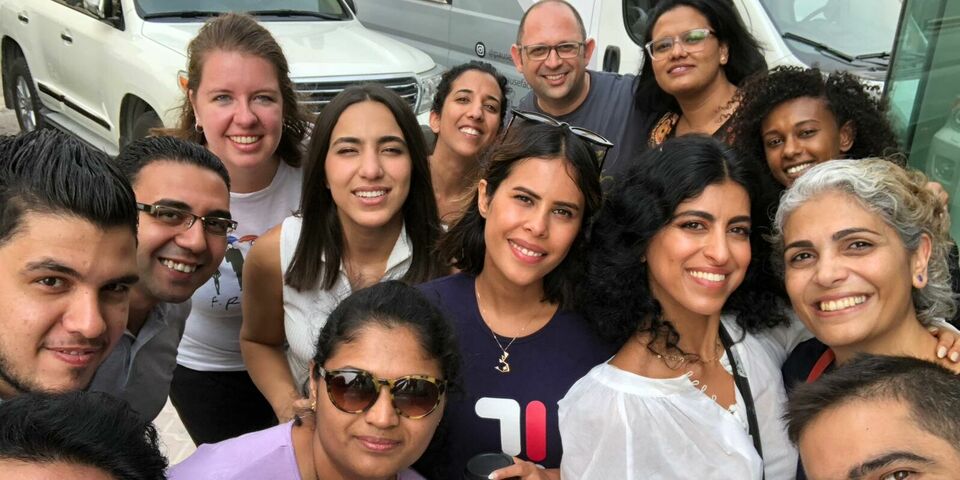I came over to do research on the development of a Social Impact Index, as part of my Master Industrial Design. The measurability of this Index was part of the agenda, so I was prepared with possible methods to dive into this. However, during the first week I discovered the most important lesson that characterizes this research: nothing is as it seems.
This lesson was also applicable to my perception of this oil state. Luckily it didn’t take long for my built up tension to make space for a good dose of curiosity. I decided to step into the rollercoaster named ‘trying to get a grip on Kuwait’, an adventurous decision that turned everything that is familiar upside down:
Completely finishing your dish is rude. You open the window to warm up. It is better to reject an offer around three times before you accept it, otherwise you will seem greedy. Everything happens here 'inshallah' (= when God wants it), something that I, as an organized Dutch person, still can’t deal with very well - inshallah also means that the intention of doing something is also enough, so if that appointment will ever happen ..?
Apart from these differences in practices, society is also organized very differently. As a Kuwaiti, for example, you are entitled to a job by law, which means you can never be fired. A 'wasta' is also essential here; someone who can arrange things for you via good connections.
An understanding of this context is, in my opinion, essential to be able to place Social Impact in perspective. Perhaps you can imagine that your perspective on themes such as sustainability is influenced, when the government pays 95% of the energy costs. But how sustainably is Kuwait organized when the (need for) oil runs out?
Summarized: Kuwait is a society in transition, which entails an inexhaustible source of research opportunities. So for everyone with an interest: yes, it is safe, no, you do not need to wear a hijab (unless you want to go to a mosque) - and I wish you have fun!




Discussion